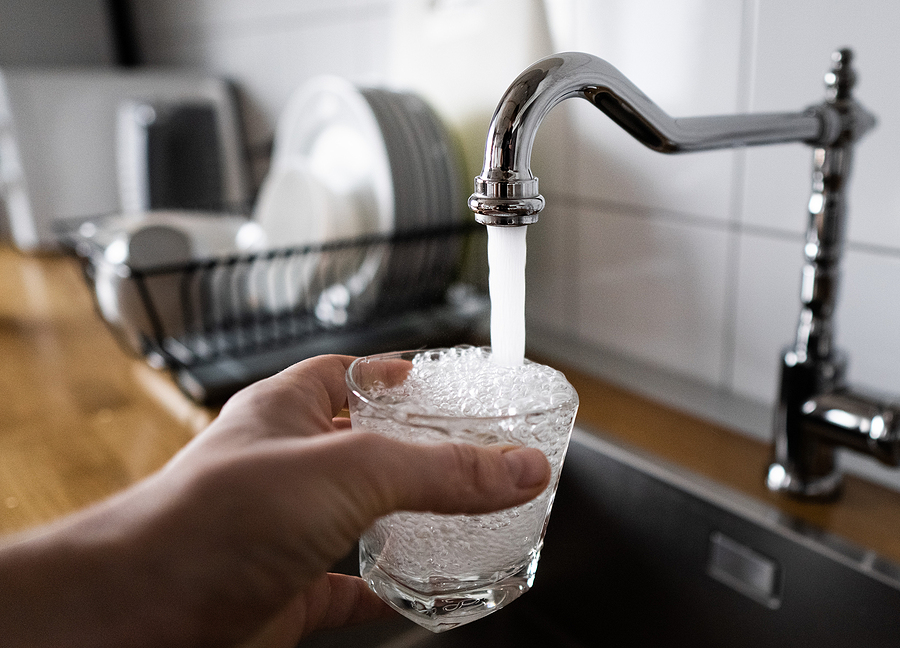Water is a crucial resource, and having access to clean, safe water is essential for any household. There are two primary sources of water for homes: well water and city water. Each option has its benefits and drawbacks. Understanding these can help homeowners make an informed decision. We will compare well water vs city water to help you understand the pros and cons and decide the best option for your home.
Well Water
Well water is sourced directly from the ground. It is collected by drilling a well into an underground aquifer and pumping the water up to the surface. This method taps into the natural water supply beneath the earth, which is replenished by rain and natural seepage.
The Pros
Natural Filtration
Well water often benefits from natural filtration through the earth, which can enhance its taste and quality. The layers of soil, sand, and rock act as filters, removing many impurities before the water reaches the well.
Cost-Effectiveness
Once the initial investment in drilling the well and installing the pump is made, well water is generally free. There are no monthly water bills, making it a cost-effective option in the long run. Maintenance costs can arise, but they typically amount to less than ongoing municipal water charges.
Independence from Municipal Supply
Having a private well means independence from the municipal water supply. This can be particularly advantageous in areas where the city water supply is unreliable or there are restrictions on water usage. Well owners have control over their water supply and are not subject to municipal regulations or rate increases.
The Cons
Maintenance Requirements
Well water systems require regular maintenance to ensure water quality and system functionality. This includes annual inspections, water testing, and periodic cleaning of the well and pump. Neglecting maintenance can lead to contamination and equipment failure.
Contamination Risks
Well water is susceptible to contamination from various sources, such as agricultural runoff, septic system leaks, and natural minerals. Contaminants like bacteria, nitrates, and heavy metals can pose health risks if not properly managed. Regular testing and proper well construction are crucial to mitigate these risks.
Initial Installation Costs
The upfront cost of drilling a well and installing the necessary equipment can be significant. This includes expenses for drilling, pump installation, and any required filtration systems. While these are one-time costs, they can be a barrier for some homeowners.

City Water
City water, also referred to as municipal water, is supplied by local government or private companies. It is sourced from surface water bodies like rivers, lakes, and reservoirs, or from groundwater. The water is treated at a central facility to meet safety standards before being distributed to homes through a network of pipes.
The Pros
Reliability and Convenience
City water ist is constantly monitored and treated to meet safety standards, ensuring a consistent clean water supply. This eliminates the need for homeowners to keep up with maintenance or worry about contamination issues, as these are managed by the municipal authorities.
Treatment and Regulation
Municipal water undergoes rigorous testing and treatment to remove contaminants and ensure safe drinking water. This includes processes like filtration, chlorination, and fluoridation. Regulations require municipalities to conduct regular reporting ensuring transparency and accountability.
Infrastructure and Support
City water systems come with established infrastructure and support. Any water supply or quality issues can be reported to the local water authority. They are responsible for addressing and resolving problems. This support network provides peace of mind to homeowners.
The Cons
Cost
City water comes with monthly bills based on usage. While the cost varies by location, it can be a significant expense, especially for large households or those with high water usage. Additionally, rates can increase over time due to infrastructure improvements and rising treatment costs.
Chemical Treatments
Municipal water treatment often involves adding chemicals like chlorine and fluoride to disinfect and prevent tooth decay. While these chemicals are generally considered safe at regulated levels, some people have concerns about their potential health effects and prefer untreated well water.
Dependence on Municipal Systems
Reliance on municipal water means dependence on the city’s infrastructure and policies. Any disruptions in the municipal supply, such as maintenance work or natural disasters, can affect the availability and quality of water. Homeowners have little control over these factors.
Well Water vs City Water – Factors to Consider
Location
The geographic location of a home can influence the choice between well water and city water. Rural areas are more likely to use well water due to the lack of municipal infrastructure, while urban and suburban areas typically have access to city water.
Water Needs and Usage
Assessing personal or household water needs is important. Homes with high water usage, such as those with large families or extensive landscaping, may benefit from the lower long-term costs of well water. Conversely, those who prefer the convenience and reliability of city water may opt for municipal supply.
Budget and Long-Term Costs
Evaluating the initial and ongoing costs is crucial. While well water requires a significant upfront investment, it can be more economical in the long run. City water, on the other hand, involves regular bills but requires minimal maintenance from the homeowner.
Well Water Professionals
When considering well water vs city water, both offer advantages and disadvantages. If you need assistance with deciding to switch or with an existing water well, A1 Drilling and Pump Service is here to help. Our team of experts provides professional well water services, including installation, maintenance, and repairs. Trust us to ensure your water quality and system efficiency. Contact A1 Drilling and Pump Service today to schedule a consultation or service.
Well Water vs City Water FAQs
What are the main advantages of well water?
Well water offers natural filtration, cost-effectiveness, and independence from municipal supply.
What are the common drawbacks of well water?
Well water requires regular maintenance, has contamination risks, and involves high initial installation costs.
Why might someone choose city water over well water?
City water is reliable, convenient, and regulated, providing consistent and safe drinking water without the need for homeowner maintenance.
What are the cons of using city water?
City water can be costly, involves chemical treatments, and homeowners are dependent on municipal infrastructure.
How does geographic location influence the choice between well water and city water?
Rural areas often use well water due to the lack of municipal infrastructure, while urban and suburban areas typically have access to city water.






